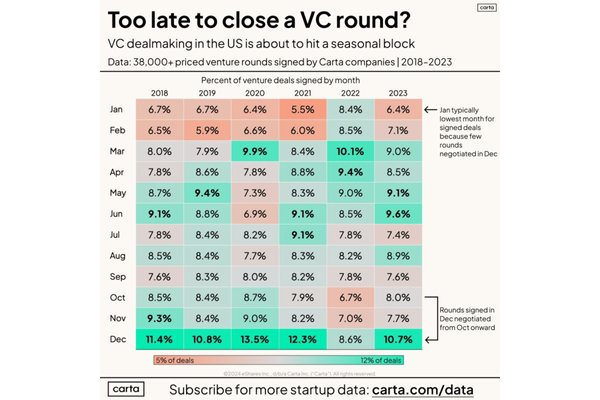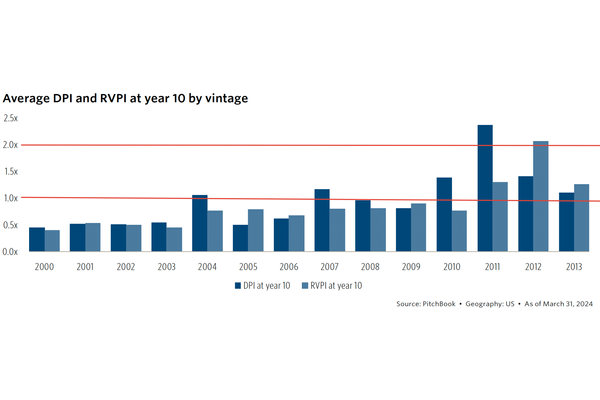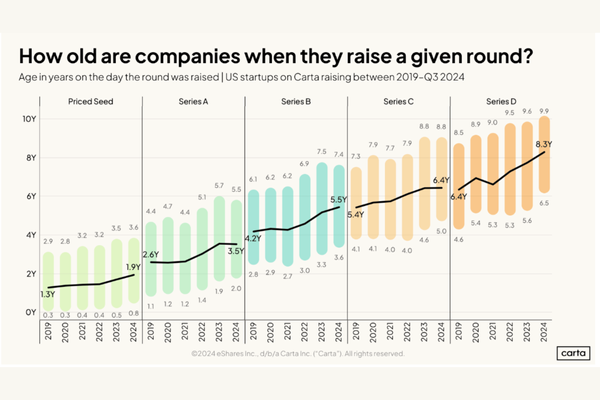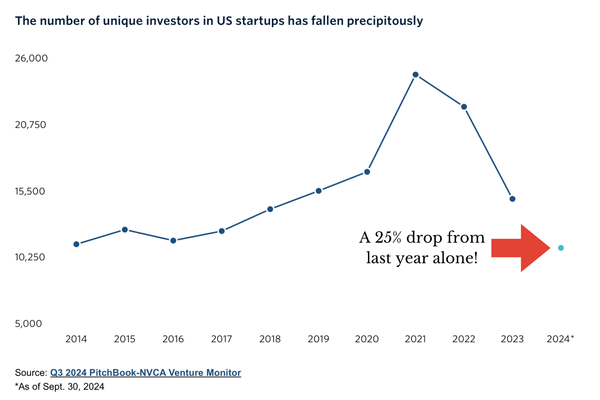Now You Know That Private Company Valuations Are Arbitrary
The recent WeWork IPO debacle is certainly a great demonstration of how unreliable and arbitrary private company valuations can be. Six weeks ago, WeWork expected to go public at a valuation of as much as $60 billion. Now, they are on the edge of bankruptcy and hoping for a lifeline at a valuation of $8 billion or less.
I know it makes for a great press release or TechCrunch article when you can announce a big valuation after your last round. But until a company hits the public markets, and the public can dissect a few 10Q's and 10K's, the valuation of a company is whatever the founder, investors and company board is willing to accept.
We are seeing another example of this in the digital media space. The dominance of Facebook and Google in the digital ad space has shaken the industry to its core. Facebook and Google take 60% of all digital ad spend, leaving very little for the well funded digital media upstarts of the past ten years. Amazon's rapidly growing advertising business now takes nearly 10% of all digital ad spend, making the rest of the pie even smaller.
A wave of consolidation has moved across the digital media landscape. The bet is that with great scale will finally come profitability, and some of the last companies standing will find a way to an exit for their investors sometime down the road.
Just in the past six weeks, we've seen three large mergers. Vox acquired New York Magazine parent company New York Media for $105 million. That was followed by Vice merging with Refinery 29 in a $400 million deal. And then two weeks ago, Group Nine Media announced the merger with PopSugar, with PopSugar being valued at $300 million, and the post merger value of Group Nine estimated to be $1 billion.
What's interesting about all three deals is that they were all stock transactions. No cash was exchange. No paydays for any investors, founders or employees.
And as we noted above, the valuation of private companies is very subjective. And when we are dealing with all stock transactions, the calculation of the value of the acquired and acquiring company, is negotiated between all of the parties involved. It's whatever everyone agrees the valuations should be.
In the Vice / Refinery 29 transaction, the combined companies are reported to have a combined private company valuation of $4 billion. Sure, this represents a haircut for both companies. Refinery 29 at one point was valued at $500 million, and Vice once had a valuation of over $5.6 billion.
But how do we know that the combined companies are still worth $4 billion? It wasn't that long ago that Disney, an early investor in Vice, reported that it had written-off its entire $400 million investment in the company, suggesting that they didn't expect any return at all.
The reality is, the valuation of both companies in this deal came from a mutual agreement between Refinery 29 and Vice. For Refinery, a higher Vice valuation is ok as long as it allows Refinery to also maintain a high valuation. There is a balance at play here between how much ownership of the combined company each side will own, against the desire to maintain as much valuation from prior rounds as possible.
So if Refinery 29 wants to target 10% ownership in the merged companies, and doesn't want its valuation to fall too far from the $500 million valuation of a few years ago, you could see how everyone could be happy with a combined company valuation of $4 billion.
So what is Vice really worth? Who knows? Today, $4 billion. In the future, as a private company, whatever valuation they can get the next round of investors to agree upon.
Your company's valuation is subjective. Private company valuations are far more art than science.
Your valuation is not just a multiple of revenue or EBITDA (assuming you have any EBITDA). Factors include the perceived market opportunity you're going after, the traction you've demonstrated, the quality of you and your team, and your ability to create interest in your company among multiple investors to create a competitive process.
It's incredibly important to understand this dynamic, whether you're raising for your first angel round, or negotiating a Series E extension with your last round of investors.




